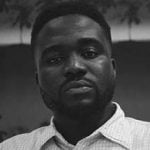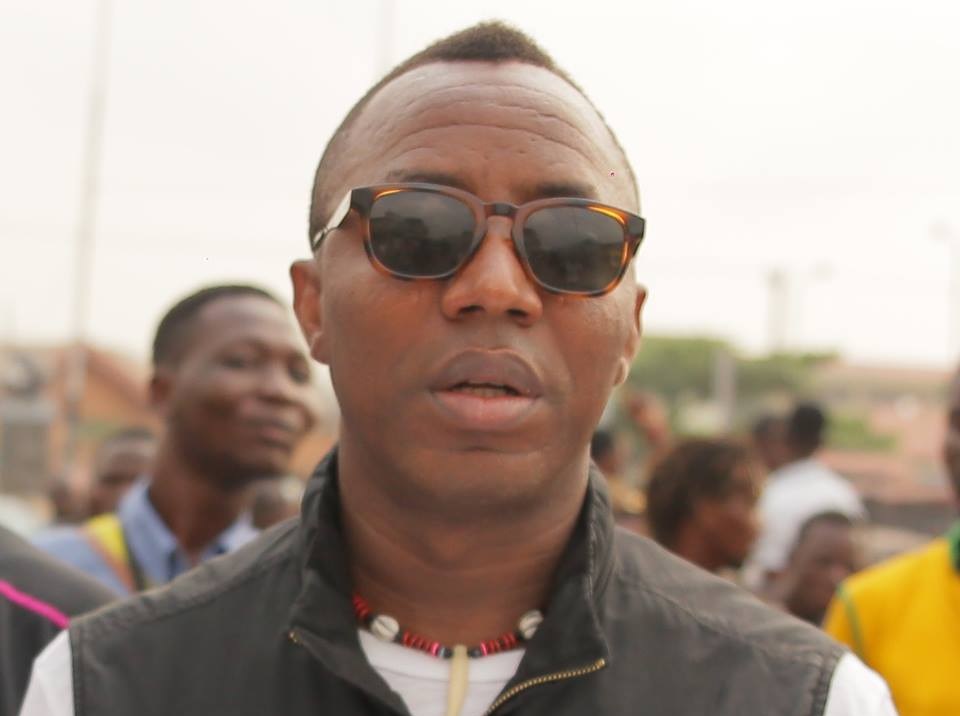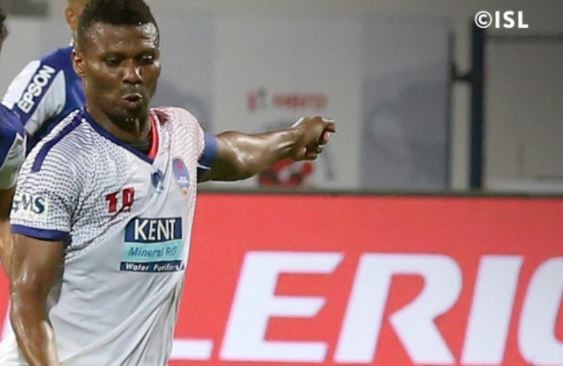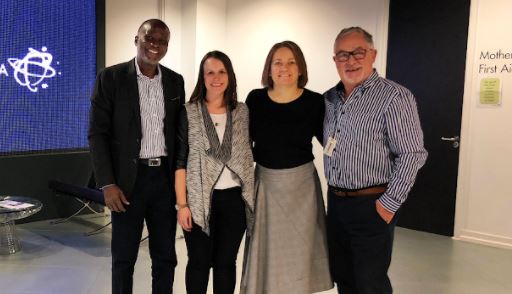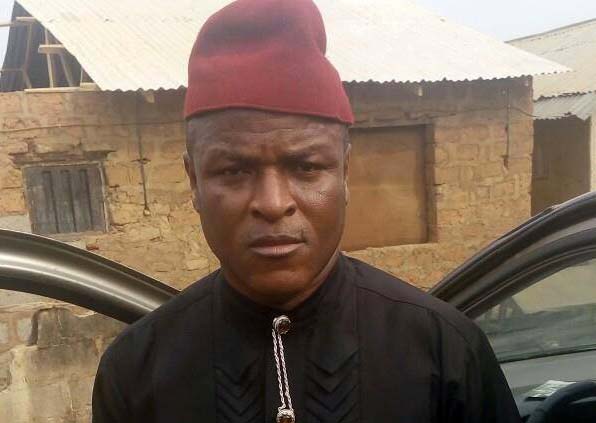“Sho Baba!” That is Omoyele Sowore, publisher of Sahara Reporters, being hailed by his friends and fans.
He is “my presido” to those who attended the University of Lagos at the time he was the president of the student union government (SUG).
Easily identified with his signature looks that shows a pan-Africanist, Sowore, who shares his time between New York and Lagos, is always attired in African made cloth, with the string of cowries and beads worn around his neck.
You may or not like his style, the enigma that is Sowore, over the years, has used Sahara Reporters— his citizen journalism media platform— to expose tens of wrongdoings in the Nigeria polity.
Advertisement
“The looters and despoilers of Nigeria may wish you dead but a lion’s liver is a vain wish for dogs,” Pius Adesanmi, a Nigerian public intellectual, wrote about Sowore on March 1, when Sahara Reporters clocked 12. “You are the husband of their mothers, the elephant who used them as carpet when they tried to block its path,” Adesanmi added.
Oh well, presidential election is 11 months away and from the colourful flyers flying around, the publisher of Sahara Reporters may be listed on the ballot paper as a presidential aspirant.
A BOY OF HOPE…
Advertisement
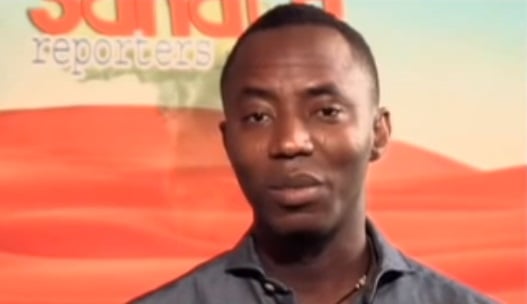
“A boy of hope, but he should work harder for better future,” Sowore’s class teacher at the Community High School Kiribo, Ondo State made this remark on his result— where he had failed Mathematics, one of the core subjects, in 1984.
At age 9, Sowore, being the first child of a family of 24, fished in the lake for his family every morning before going to school. He would fetch water, wood and later, with his dad’s motorbike, he began making a living off helping women to ferry wares to the market.
By the time he was 13 and in class four, he couldn’t bear the burden anymore. His grades in school were terrible and the school principal had grudgingly promoted him to the next class.
Age 14, he finished secondary school with depressing results.
Advertisement
His father, who took his class teacher’s comment on his result as prophesy, sent him to live with one of his uncles, where he was to start school afresh.
Sowore eventually passed his exams and was offered admission into the University of Lagos.
SOWORE, ACTIVIST AND JOURNALIST
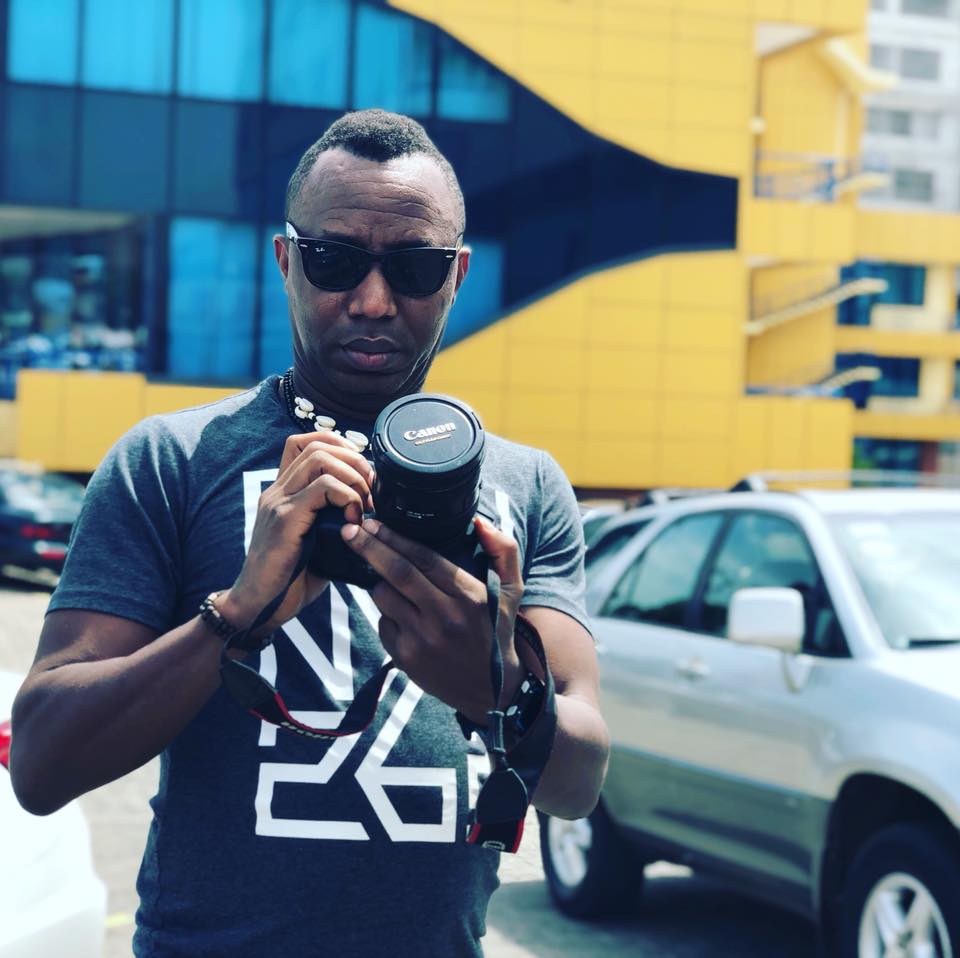
Sometime in 1980, a group of policemen invaded Kiribo community where Sowore was growing as a boy. There had been a clash between the policemen and youths in the community who accused the officers of extorting money from market women.
Advertisement
From where Sowore sat inside his mother’s shop, he watched how people were brutalized by the police officers. Women weren’t spared as these officers took turn on them, and one of the rape victims was Sowore’s cousin.
The young Sowore had wished he had all the powers. He struggled from within, but he was just a little boy. That moment, however, the incident would stir the activism in him.
Advertisement
He once recalled; “as I grew up and realized the implication of what I witnessed, I decided to dedicate my life to the fight for human rights.”
Sowore took on activism in a full scale in 1989 at the University of Lagos. As a student activist, he was fully involved in demonstrations and rallies against the military rule of the time. He was a leading voice in the protests against the conditions of an International Monetary Fund (IMF) loan of $120 million to be used for a Nigerian oil pipeline. One of the loan conditions was to reduce the number of universities from 28 to five.
Advertisement
In 1992, Sowore was elected president of the SUG, and he continued to lead students in protests against government’s draconian policies. Fighting for students’ rights, he was expelled twice by the university authorities. And, more than five times, for constantly speaking against the government, he was arrested by the police and detained for days.
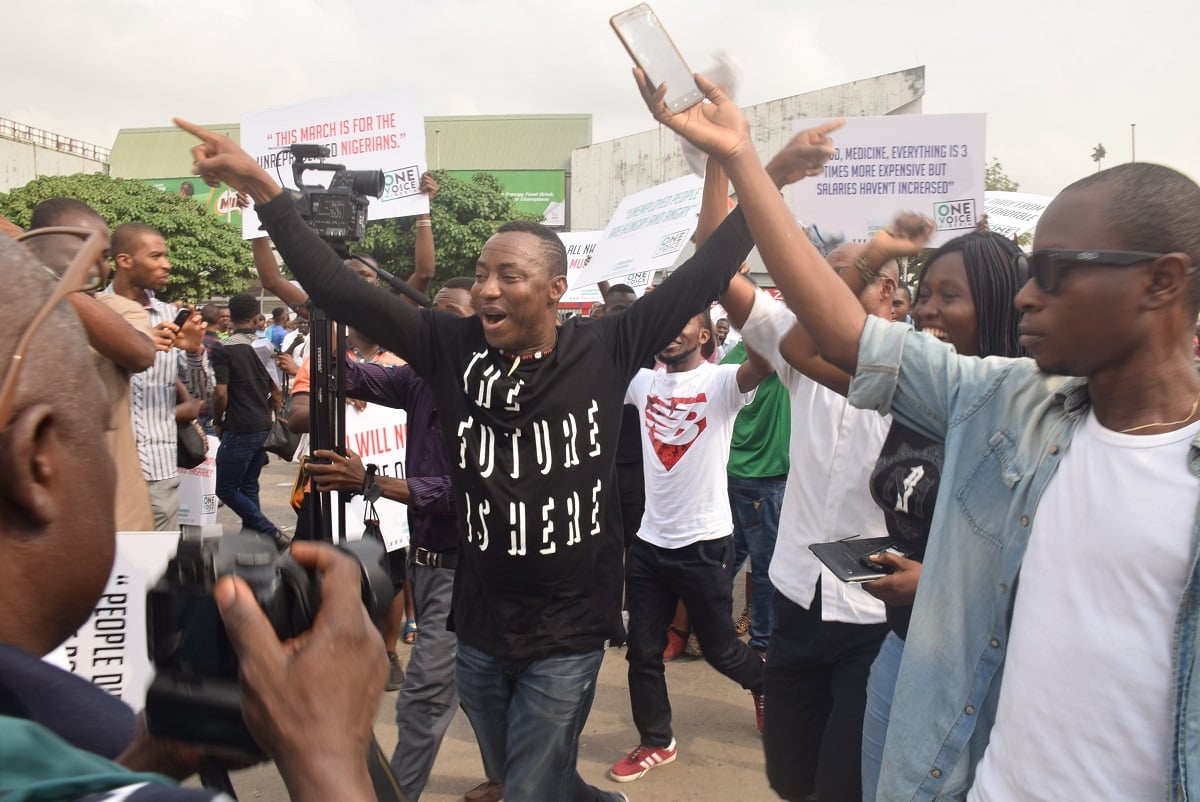
One would have thought Sowore’s activism would end the moment he graduated, he carried the spirit with him to Adamawa state where he did the one year mandatory National Youth Service Corps (NYSC) service. The activist corps member was dismissed from the Adamawa State Broadcasting Corporation, his place of primary assignment. On a socio-political show he anchored, he had criticized the circumstances surrounding the death of Ken Saro-Wiwa, an environmental activist, and this, the offense that led to his dismissal.
Advertisement
On his last day as a corps member, while others went home, Sowore was arrested by men of the state security service and detained for two weeks. His offense this time? While serving, he mobilized his colleagues against the government.
In 1999, Sowore relocated to the US, and in 2006, he took a different area of activism by starting Sahara Reporters.
“Our mission is to do as much evidence-based reporting as possible. We want to make sure that we consistently shame and make life difficult for the thieves plundering Nigeria and holding down the country’s progress,” Sowore said of his news platform.
He had explained that he did not start Sahara Reporters with that original decision to change Nigeria’s media landscape, but soon he realized that the public trusted and yearned for more of his of reporting, and there, he decided to step fully to the plate and give in his best.
Indeed, Sowore has walked the talk. Sahara Reporters has exposed and shamed a considerable number of corrupt officials in Nigeria. Philip Shenon, a former investigative reporter with The New York Times had called Sahara Reporters the Wikileak of Africa.
Sowore, sometimes however, would not want to agree that he is a journalist. Well, he trained as a geographer, and he is more comfortable with the activist badge. He wouldn’t see this as a professional endeavor, and these days, he calls what he does; a continuation of activism.
SOWORE, PRESIDENT OF NIGERIA?
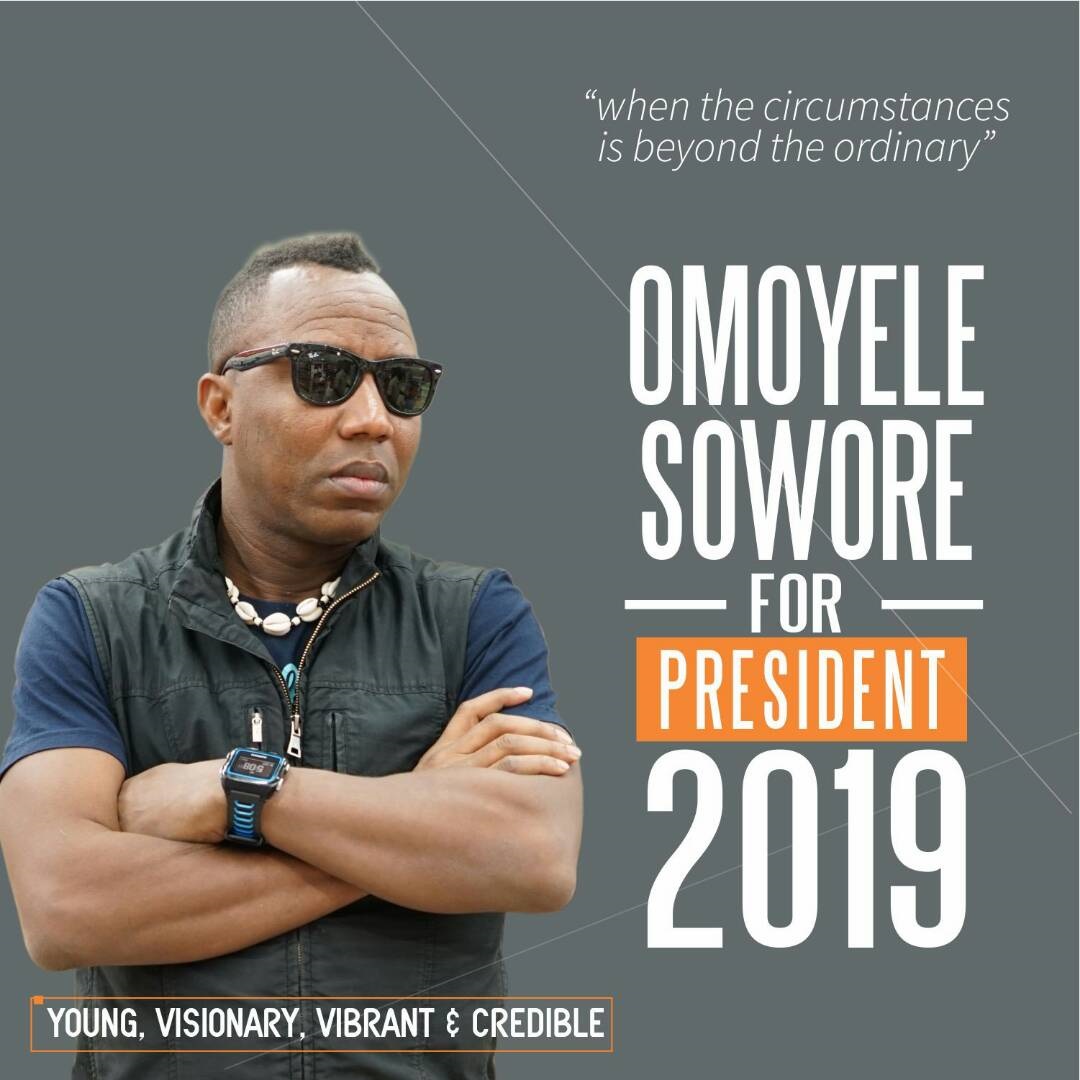
Sowore’s hatred for corrupt politicians in Nigeria is evident in his decade-long activism, writings and reporting. In his adult life, the 47 year old has continued to fight government institutions, and he cares less about his own safety, he just wants to see a corruption free Nigeria.
“Corruption will not go away if there are no long-term consequences for engaging in corruption,” Sowore would say. “Consequences, consequences, and severe consequences are the only way to curb corruption. There has to be revolutionary justice against corrupt public officers.”
But, who will lead this revolution?
“We may be late to the starting point of the revolution, but we’ll certainly get to the destination sooner than later,” Sowore while addressing his friends in Lagos, recently.
These friends who no longer believe in President Buhari’s ability to fight corruption are now calling on the dogged activist to run in 2019.
Yet to make his intentions known, he, however, recently said, “people are tired of the old order… they no longer want the ODBs and they are moving, we are all moving together!
“There will be no contest, it will be a walkover whenever the people oppressed by the wicked coalition that operates this cruel, inhuman, unjust, unfair and burdensome nation decide to take back their country.”
As his concerned friends wait to see him take up this task, can we imagine a Nigeria under a fearless President Sowore?
